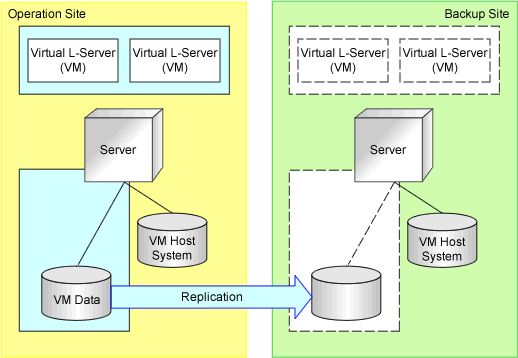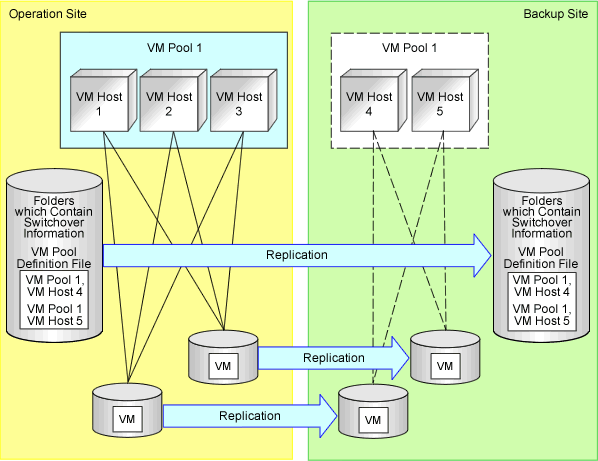Create the VM host for each site, and only switch over a virtual L-Server operating on the VM host.
Figure 2.3 Virtual L-Server Switchover (VM Guest)

Item | Description | Remarks | |
|---|---|---|---|
Manager OS | Windows | ||
Managed server type | PRIMERGY blade servers | ||
PRIMERGY rack mount servers | |||
Storage connections | FC | ||
iSCSI | |||
NAS | |||
Managed switch blades | Connection Blade | Switch mode | IBP mode cannot be used |
End host mode | |||
Converged Fabric mode | |||
Server virtualization software/VM management software | VMware/VMware vCenter Server | Only VMware ESXi 5.x is supported | |
Note
Using a VM pool definition file can reduce the number of VM hosts in the backup site. Refer to "Figure 2.4 Settings to Reduce Number of VM Hosts Using a Backup Site". For details on configuration, refer to "4. Create a VM pool definition file [Virtual L-Server switchover (VM guest)]" in "3.6 Creating Files Used for Switchover".
It is necessary to install the VMware vSphere Command-Line Interface (vCLI) on the servers which can communicate with VMware vCenter Server (such as admin servers).
Can be performed with physical L-Server switchover (physical OS)
Cannot be performed with physical/virtual L-Server switchover (VM host/VM guest)
Do not configure VM hosts on physical L-Servers.
Disks containing VM data
Use FC, iSCSI or NAS connection disks as replication targets.
Disks storing storage areas of VM hosts are not regarded as replication targets. Therefore, it is possible to locate the system areas of VM hosts on any disks. (Example: local boot)
Figure 2.4 Settings to Reduce Number of VM Hosts Using a Backup Site
